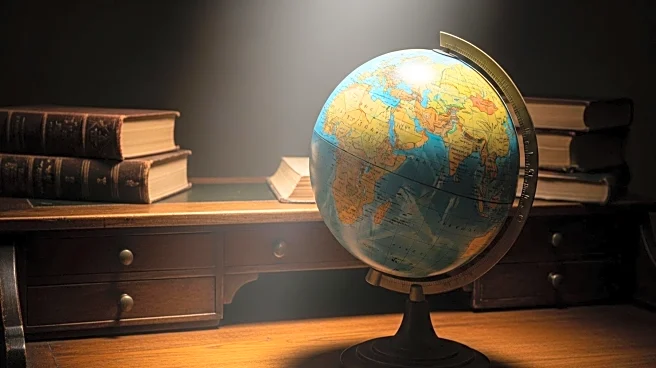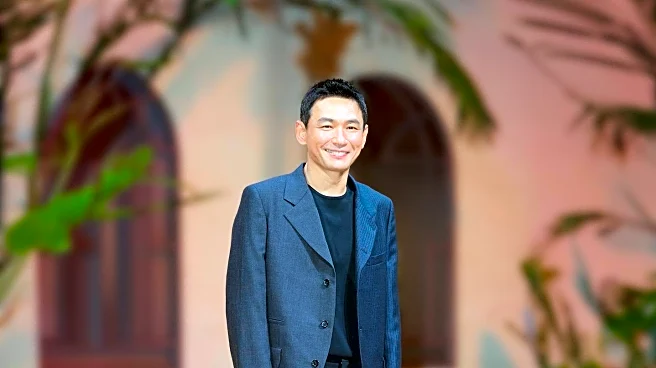What is the story about?
What's Happening?
Thant Myint-U, a historian and grandson of U Thant, has released a new book titled 'Peacemaker: U Thant and the Forgotten Quest for a Just World.' The book explores the diplomatic efforts of U Thant, who served as the first non-Western Secretary-General of the United Nations during the early 1960s. U Thant, a practicing Buddhist from Burma, played a crucial role in de-escalating conflicts in regions such as Congo, Yemen, Cyprus, India, Pakistan, and Cuba. His tenure at the UN was marked by his efforts to give voice to newly decolonized nations and safeguard the environment, establishing him as a prominent ambassador of peace during the Cold War era.
Why It's Important?
The book sheds light on U Thant's significant contributions to global diplomacy and peacekeeping during a tumultuous period in history. By highlighting his efforts to address international crises and promote environmental protection, the book underscores the importance of diplomatic leadership in fostering global stability. U Thant's legacy is particularly relevant today as the world faces complex geopolitical challenges and environmental concerns. The book serves as a reminder of the impact that effective diplomacy can have in resolving conflicts and promoting international cooperation.
What's Next?
The release of 'Peacemaker' may spark renewed interest in U Thant's diplomatic strategies and their applicability to current global issues. Scholars, diplomats, and policymakers might explore how his approaches to conflict resolution and environmental advocacy can inform contemporary practices. Additionally, the book could inspire discussions on the role of the United Nations and other international bodies in addressing modern challenges, potentially influencing future diplomatic initiatives.
Beyond the Headlines
U Thant's story highlights the ethical dimensions of diplomacy, emphasizing the importance of cultural understanding and inclusivity in international relations. His leadership as a non-Western figure in a predominantly Western institution challenges traditional narratives and encourages a more diverse representation in global governance. The book may also contribute to a broader discourse on the historical impact of decolonization and the ongoing quest for justice and equality in international affairs.

















